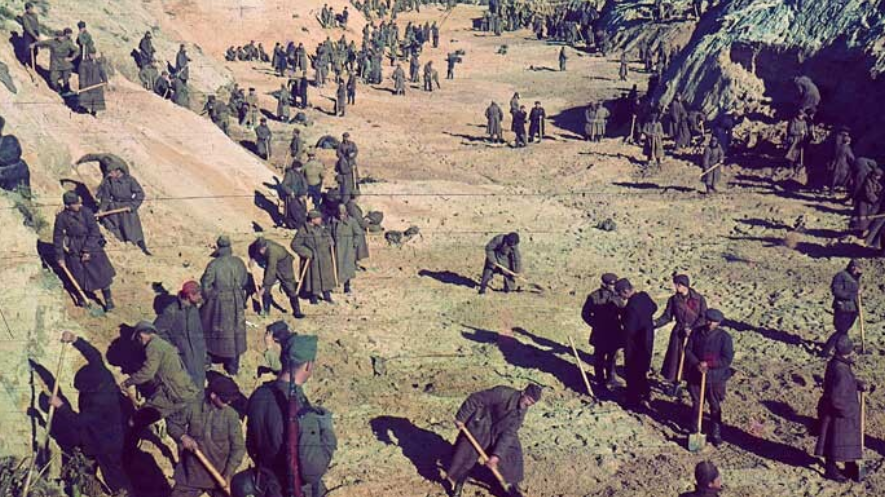- Conference
- Starts: 26/01/2023 6:00 pm
- Ends: 09/01/2023 8:30 pm
- https://historia-europa.ep.eu/en/agenda/remembering-shoah-massacres-eastern-front-panel-debate
The event reflects upon and addresses the topic of Eastern European sites where mass shootings of Jews took place during the Second World War, often referred to as “Holocaust by bullets”.
These mass shootings, which escalated in 1941, were often carried out by Nazi killing units such as the Einsatzkommandos, but in many places they also relied upon the manpower of local auxiliary units working with the SS and police, made up of local civilian, military, and police officials.
During this panel discussion, historians and scholars will outline the mass killings and pogroms of Jews in Eastern European countries, and bring into focus the tragic events that took place at Kamenets-Podolsk, Babyn Yar, Odessa and Iasi.
Speakers:
- Karel Berkhoff from NIOD in Amsterdam, senior researcher, historian of Eastern Europe (particularly Ukraine and the Soviet Union) and the Holocaust. Co-director of the European Holocaust Research Infrastructure
- Oleksandr Kruglov, Senior Historian Advisor of the Babyn Yar Holocaust Memorial Center (Kiev, Ukraine), Academic Adviser of the Tkuma Ukrainian Institute for Holocaust Studies (Dnepr, Ukraine); advisor to the Holocaust Survivors’ Rights Authority at the Ministry of Social Equality of the State of Israel
- Adrian Cioflanca, historian, director of the “Wilhelm Filderman” Center for the Study of Jewish History in Romania and member of the Collegium of the National Council for the Study of the Securitate Archives
Moderator:
- Joanna Urbanek, curator of the World War II and Holocaust galleries at the House of European History
The event will take place in the Auditorium of the House of European History and will be livestreamed on YouTube.
Image: 1941, Ukraine, Kyiv. Soviet prisoners of war under the protection of German soldiers bury the bodies of Jews shot on September 29-30, 1941 in Babyn Yar. Probably October 11
© Archives of the Hamburg Institute for Social Research/Johannes Hähle

